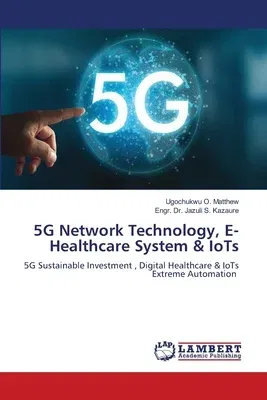Engr Jazuli S
(Author)5G Network Technology, E- Healthcare System & IoTsPaperback, 3 June 2020

Qty
1
Turbo
Ships in 2 - 3 days
In Stock
Free Delivery
Cash on Delivery
15 Days
Free Returns
Secure Checkout
Print Length
108 pages
Language
English
Publisher
LAP Lambert Academic Publishing
Date Published
3 Jun 2020
ISBN-10
6202667311
ISBN-13
9786202667319
Description
Product Details
Authors:
Book Format:
Paperback
Country of Origin:
US
Date Published:
3 June 2020
Dimensions:
22.86 x
15.24 x
0.66 cm
ISBN-10:
6202667311
ISBN-13:
9786202667319
Language:
English
Pages:
108
Publisher:
Weight:
167.83 gm

